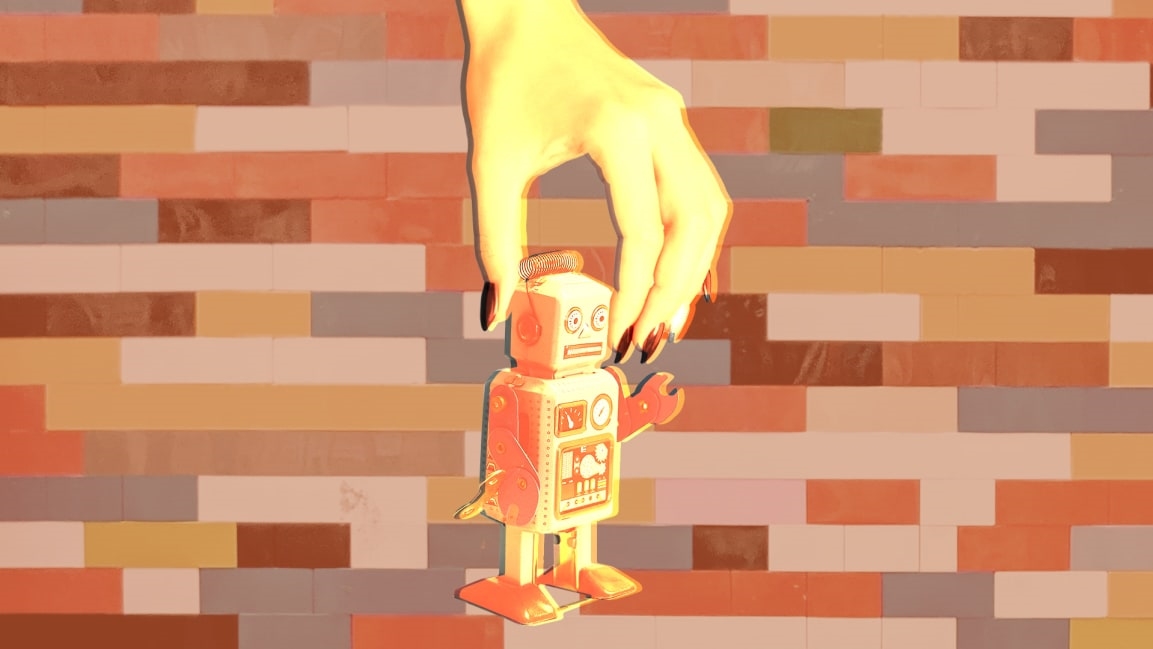4 strategies to redesign entry-level work to be more productive
Automation is changing the world. Namely, it’s changing the way we work by eliminating many of the more menial, repetitive tasks that employees currently focus on multiple hours a day. And while this is happening to employees across all areas of business, perhaps no one is being impacted more quickly—or dramatically—than practitioners and designers of entry-level work.
Soon, entry-level analysts will no longer spend 20 hours a day manipulating spreadsheets. And college graduates won’t be limited to work that’s categorically clerical. Instead, they’ll be creating, strategizing, and using irreplaceable soft skills to drive real progress at their companies empowered by automation.
Automation accelerates evolution inevitably and quickly. And as history proves, those who adapt to and embrace the innovations born of automation are invariably the ones who reap the benefits. Human “computers” evolved into the world’s first programmers when electronic computers were adopted by NASA.
Those of us who either employ new workers, design the processes they follow, or who are in the market for entry-level jobs must begin rethinking our perception of the potential and utility of entry-level work. If we don’t, we will be left behind.
Automation is by and large feared among those who do entry-level work. A 2018 Pew Research Center survey found that between 65% and 90% of people working in advanced economies fear that robots and computers will “probably or definitely take over many jobs now done by humans.” Out of instinct, perhaps, many in turn resist automation, preferring to hold on instead to what they know, advocating that the jobs of today be protected—instead of preparing for the jobs of tomorrow.
While understandable to an extent, the fear that automation will take over our jobs is misplaced. As Daniela Rus, Director of the MIT Computer Science and Artificial Intelligence Lab, said earlier this year at MIT’s AI and the Work of the Future Congress, “We don’t automate jobs, we automate tasks.”
Automating tasks, in turn, creates opportunity. The World Economic Forum predicts that automation technology will create 133 million new jobs over the next five years.
Entry-level jobs aren’t going to disappear strictly on account of automation. They will, however, change. People will do more interesting and fulfilling work—the type of work they should be engaged in to begin with, that requires empathetic, critical thinking, as opposed to work that fills technology gaps.
Automation will also more meaningfully accelerate individual growth in entry-level positions. The analyst who doesn’t have to spend 10 hours a day updating CRMs will be infinitely better prepared to lead teams or spearhead projects than their peers who do, namely because they’ll be able to spend more time thinking about things like optimizing sales processes and strategic growth initiatives. They’ll be more generally effective and have a better work-life balance.
Will some entry level jobs today be automated away tomorrow? Yes, but they won’t be missed. In fact, in time, workers will demand automation-enabled entry-level work that lends credence to their intrinsic abilities, appreciates their time and happiness, and prioritizes the development of talent.
The entry-level jobs of tomorrow will make companies more productive and effective, and embracing a new conception of entry-level work will become a competitive necessity. According to a recent LinkedIn survey, 57% of senior leaders believe soft skills are more important than hard skills. Entry-level employees who are programmatically equipped to not only engage their soft skills but to continually improve them over time promise outsize value in terms of both production and innovation.
Companies that provide such enjoyable, competitive, and valuable entry-level opportunities will attract the best talent. They’ll also reap the benefits of teams who are collectively more powerful and capable and who stay loyal to their companies for longer periods of time. Happy, intrinsically satisfied, and technologically enabled employees are more efficient and productive.
As the nature and potential of entry-level work changes, and as newly empowered employees begin exercising increased agency over how they work and for whom, embracing a new paradigm of entry-level work will soon prove a competitive necessity, too.
We as a society currently teeter on the precipice of a dichotomous shift for entry-level work with a clearly defined “before” and “after” with the old concept of entry-level work on one side, and empowered, energized entry-level engines on the other. Companies who allow themselves to reimagine what’s possible of entry-level work will thrive, or at least survive. Those who don’t, will not.
So, what should businesses and company leaders do to prepare for this new future?
Redesign internal processes and systems to be people-first
Employees are demanding that their employers enable them to spend their time productively and on tasks that fit their intelligence and ability—work that couldn’t otherwise be automated. When designing processes, companies should look to satisfy both business and employee needs equally, rather than focus on the business first and employee last. Look for technology solutions that adapt to allow people to work naturally instead of requiring users to mold their work around the technology, like low-code and no-code workflow solutions. These will prove to meaningfully save your entry-level employees from menial work.
Reset cultural expectations
Your office culture must also encourage entry-level workers to contribute and add value when they are enabled by automation. Entry-level workers with increased capacity can be included in strategy meetings and be tasked with challenging projects. At the very least, they shouldn’t be asked to only ever focus on mindless, menial, automatable work. This will equip them to do more than that.
Cultivate employees’ soft skills
Since these will be the skills that matter most moving forward, it only makes sense that you’d begin to develop them more systematically. Companies who invest in systems and processes designed to help their employees grow as people, and in the process treat them as more than mere robots, will succeed heading into the new decade.
Encourage and invest in employees’ continued learning
Both companies and individuals will need to continuously evolve and grow to meet new demands and remain effective. This is not a one-time investment, designed to accommodate a singular innovation. Employees should feel explicitly enabled and regularly encouraged to always learn and grow. Companies who commit to developing lifelong students—ever seeking new opportunities and means of improvement—will create workers poised to seize new opportunities as they arise and develop new skills as they come into demand.
My work in the newly emerging adaptive software space has taught me that we are at the precipice of a new future. And although some people will fear it and want to hold onto the past, evolution is inevitable. If we want to make the most of our future, we must embrace not only the possibility of change but the opportunity.
As the entry-level human computer became an entry-level programmer, who eventually became an entry-level developer, so too should all entry-level positions be purposefully designed to capitalize on—and accelerate—continued innovation.
Sagi Eliyahu is the cofounder and CEO of Tonkean.
(11)



